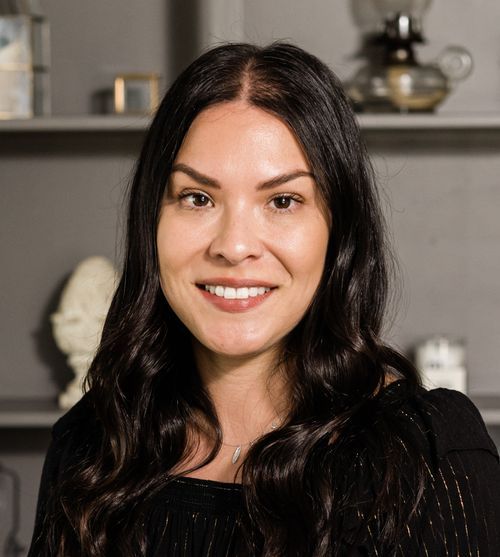Therapist for Mothers
Belinda Aliahmad – Clinical S.W. and Psychotherapist
Belinda Aliahmad is a licensed social worker and therapist in the Lake Saint Clair Michigan Area. She has been in practice for 5 years, and has a unique background in criminal justice and social work.
Gain clarity and freedom from distress
I offer therapy services for mothers to help them gain clarity about their feelings, understand their emotions better and to find a way out of their struggles. Ensuring that the clients learn how to become more mindful, aware, and intentional about their thoughts and actions.
Long-term strategies for success
My focus is on providing long-term strategies that will help mothers feel empowered and free from any distress they may be facing. Taking into account all aspects of life, so that clients can find lasting solutions that will bring them joy and fulfillment.
Therapy Practices:
Finding a Therapist for Mothers for those who often face unique emotional challenges related to parenting, family dynamics, and work-life balance can be a real challenge. Here some of the most successful therapies I recommend for mothers:
Parent-Child Interaction Therapy (PCIT): PCIT is a type of therapy that helps mothers improve their relationship with their child by teaching them new parenting skills. It can be helpful for mothers who are struggling with behavior issues or communication problems with their child.
Acceptance and Commitment Therapy (ACT): ACT is a type of therapy that helps individuals learn to accept difficult emotions and thoughts, while committing to actions that align with their values. It can be helpful for mothers who are struggling with guilt, stress, or feelings of being overwhelmed.
Interpersonal Therapy (IPT): IPT is a type of therapy that focuses on improving relationships and social support. It can be helpful for mothers who are struggling with postpartum depression, anxiety, or other emotional issues related to their relationships.

Belinda – Social Worker for Women
Belinda offers compassionate therapy to help individuals dealing with domestic violence, women’s issues, self-esteem and other mental health issues. She specializes in working with women and mothers to help them find their inner strength.
Criminal Justice Background
Belinda’s background in criminal justice gives her an understanding of the underlying causes of domestic violence, while also giving her a unique perspective on how to help those who have experienced it.
5 Years of Therapy Experience
Having been in practice for 5 years, Belinda has a deep understanding of the complexities of human behavior. She works with individuals on both short-term and long-term issues to help them reach their full potential.

How can a social worker help with adoption?
Social workers play an important role in the adoption process and can provide assistance in several ways:
1. Providing counseling and support: Social workers can provide counseling and support to birth parents who are considering adoption, helping them to explore their options and make informed decisions about their child’s future.
2. Conducting home studies: Social workers are responsible for conducting home studies, which are evaluations of prospective adoptive parents to determine their suitability for adoption.
3. Facilitating communication: Social workers can facilitate communication between birth parents and adoptive parents, helping to ensure that everyone is on the same page and that the child’s needs are being met.
4. Providing post-adoption support: Social workers can provide support to adoptive families after the adoption is complete, helping them to adjust to their new family dynamic and providing resources and referrals as needed.
5. Advocating for the best interests of the child: Social workers are always focused on the best interests of the child, and in adoption cases, they work to ensure that the child’s needs are being met.

My Mission
As a therapist, I aim to help my clients realize their full potential. Many of us have experienced trauma in our past years that continue to impact our daily living. Perhaps if we talked more openly about issues that impact our daily lives, the stigmas will decrease.

